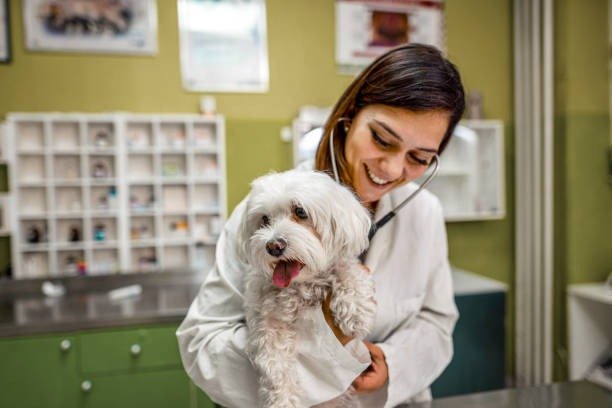Taking care of your furry friend is a crucial part of pet ownership. One of the essential facets of pet care is understanding how often your pet should have a wellness exam. This isn’t a more than one-size-fits-all situation, as different pets have different needs. Let’s explore the timeline and significance of wellness exams for your loyal companion.
What Are Wellness Exams
A wellness exam is a routine check-up for your pet, very much like an annual physical for humans. These visits help veterinarians monitor and manage your pet’s health proactively. During the exam, your vet will typically:
-
Check your pet’s weight
-
Examine their coat and skin
-
Assess their dental health
-
Look for any abnormalities
-
Discuss any changes in behavior or appetite
The Different Stages of Pet Life
Your pet’s age plays a significant role in determining the frequency of their wellness exams. Let’s break it down:
1. Puppies and Kittens
For the youngest members of your pet family, wellness exams are vital and frequent. Puppies and kittens should have wellness visits every three to four weeks until they are about four months old. These early visits often include vaccinations and initial health monitoring.
2. Adult Pets
Once your pet reaches adulthood, the frequency of wellness exams can decrease. For healthy adult pets, a yearly wellness exam is generally sufficient. Annual exams help manage weight, dental health, and overall condition.
3. Senior Pets
As pets get older, they require more frequent check-ups. Senior pets, usually classified as seven years and older, benefit significantly from semi-annual wellness exams. Older pets are more susceptible to ailments, which makes regular monitoring crucial.
Routine Procedures During Wellness Exams
Each wellness exam can include a variety of procedures, depending on your pet’s age, breed, and overall health. Here’s a look at common procedures:
1. Physical Examination
A thorough physical exam is the cornerstone of any wellness check-up. The vet will inspect your pet from nose to tail, ensuring they are in tip-top shape.
2. Vaccinations
Maintaining an up-to-date vaccination schedule is essential for preventing diseases. Your vet will recommend necessary vaccinations during wellness visits.
3. Parasite Prevention
Fleas, ticks, and other parasites can wreak havoc on your pet’s health. Wellness exams are great for ensuring your pet receives the best line of defense against these critters.
Preventive Care
Focusing on parasite prevention and pet vaccinations is an integral part of wellness exams. Vaccines protect against common infectious diseases, while parasite prevention shields against fleas, ticks, and heartworms. Both are essential for a long, healthy life.
Tracking Mental and Behavioral Health
Wellness exams are not just about physical health; they also focus on your pet’s mental and behavioral well-being. Changes in behavior can indicate underlying health issues. Discuss any concerns with your vet during these visits.
Specialized Care
Some pets may require more specialized care from a veterinary internist. If your pet has chronic conditions or complex medical needs, your regular vet might collaborate with specialists for comprehensive care.
Dental Health and Its Importance
Oral health is crucial but sometimes overlooked. Pet wellness exams often include a dental check-up. Poor dental health can lead to infections and other issues, making regular dental exams vital.
Spaying and Neutering
Spaying and neutering are crucial medical procedures that contribute to your pet’s overall health and help control the pet population. Establishments like the North Boulder Companion Animal Hospital emphasize the importance of these procedures as part of routine pet healthcare.
Why Consistency is Key
Maintaining a consistent wellness exam schedule allows for early detection of potential issues. Think of it as tuning up a car—you catch problems before they worsen. Consistency ensures your pet stays as healthy and happy as possible.
Creating a Wellness Schedule
Each pet is unique, and their wellness schedule should reflect that uniqueness. To create the optimal schedule:
-
Consult with your veterinarian for tailored advice
-
Consider your pet’s age, breed, and overall health
-
Keep a record of past exams and any medical history
-
Stay flexible and adjust as needed according to seasonal needs and any changes in your pet’s condition
Costs and Budgeting
One of the questions that often arises is the cost of these exams. While it might seem like an additional expense, regular wellness exams can save you money in the long run by catching potential issues early. Budgeting for these exams, just like any other essential pet care, can ease the financial burden.
Final Thoughts
Wellness exams are a cornerstone of preventative healthcare for pets. Whether you’re a new pet owner or have had your furry friend for years, understanding how often to schedule these exams is key to ensuring a healthy and happy life for them. By collaborating with your vet, you can create the best plan for your pet’s unique needs. Remember, proactive care is the best care.
Keeping up with wellness exams can make all the difference in your pet’s overall health and longevity. So, mark those calendars, set reminders, and keep those vet appointments. Your pet will thank you, maybe not with words, but certainly with wagging tails and happy purrs.

